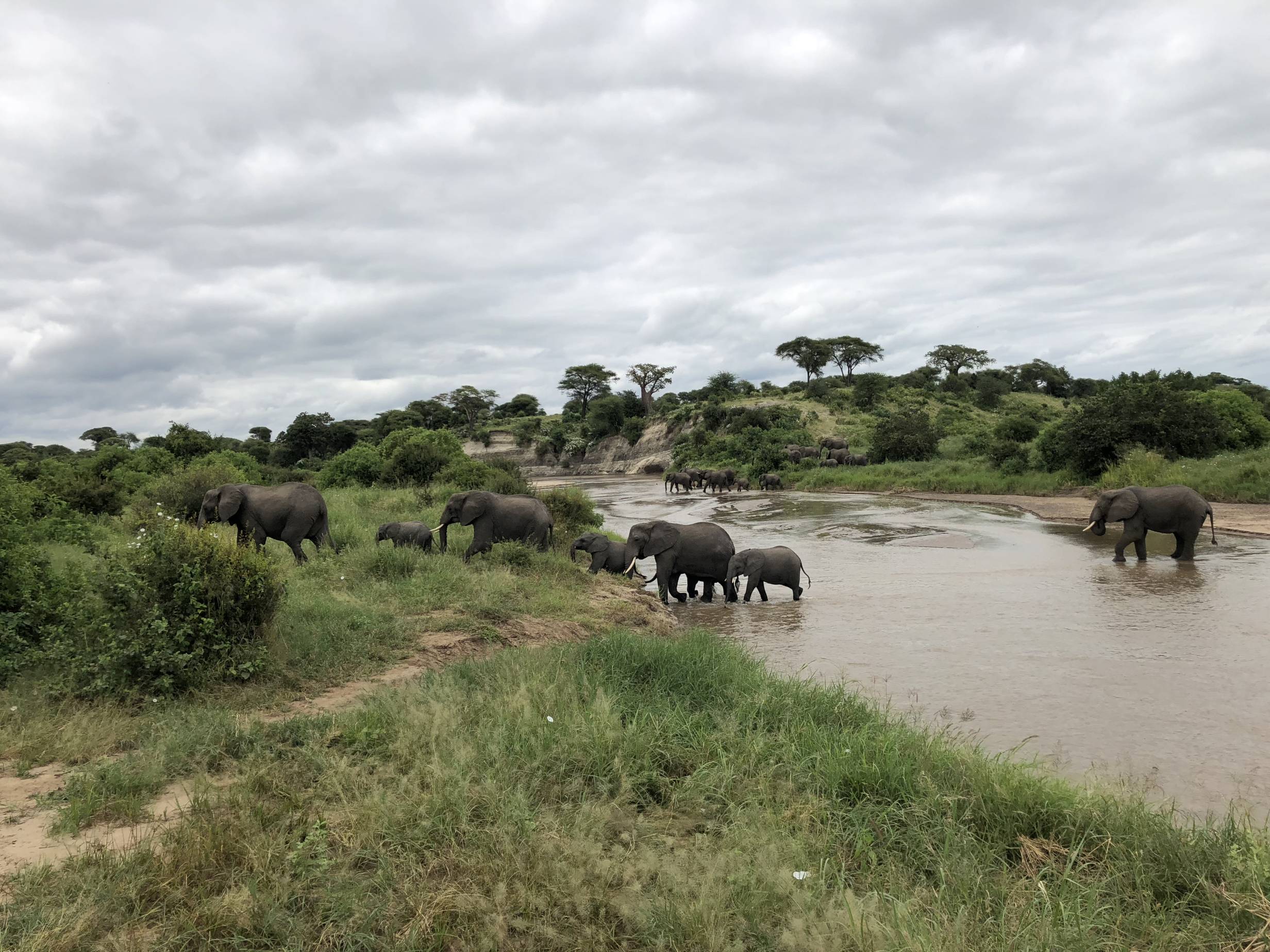Recently a group of UIUC faculty and graduate students conducted various research projects in Tanzania near the areas of Arusha and Mount Kilimanjaro. The trip was organized by the Subsistence Marketplaces Initiative, Gies College of Business, University of Illinois, in partnership with the Marketplace Literacy Project, Illinois (MLP) both founded by Professor Madhu Viswanathan, and Oikos East Africa, a non-profit environmental conservation organization based out of Milan, Italy. Six team members of the Marketplace Literacy Communities (MLC), a non-profit organization in India that was founded in partnership with MLP also joined us.
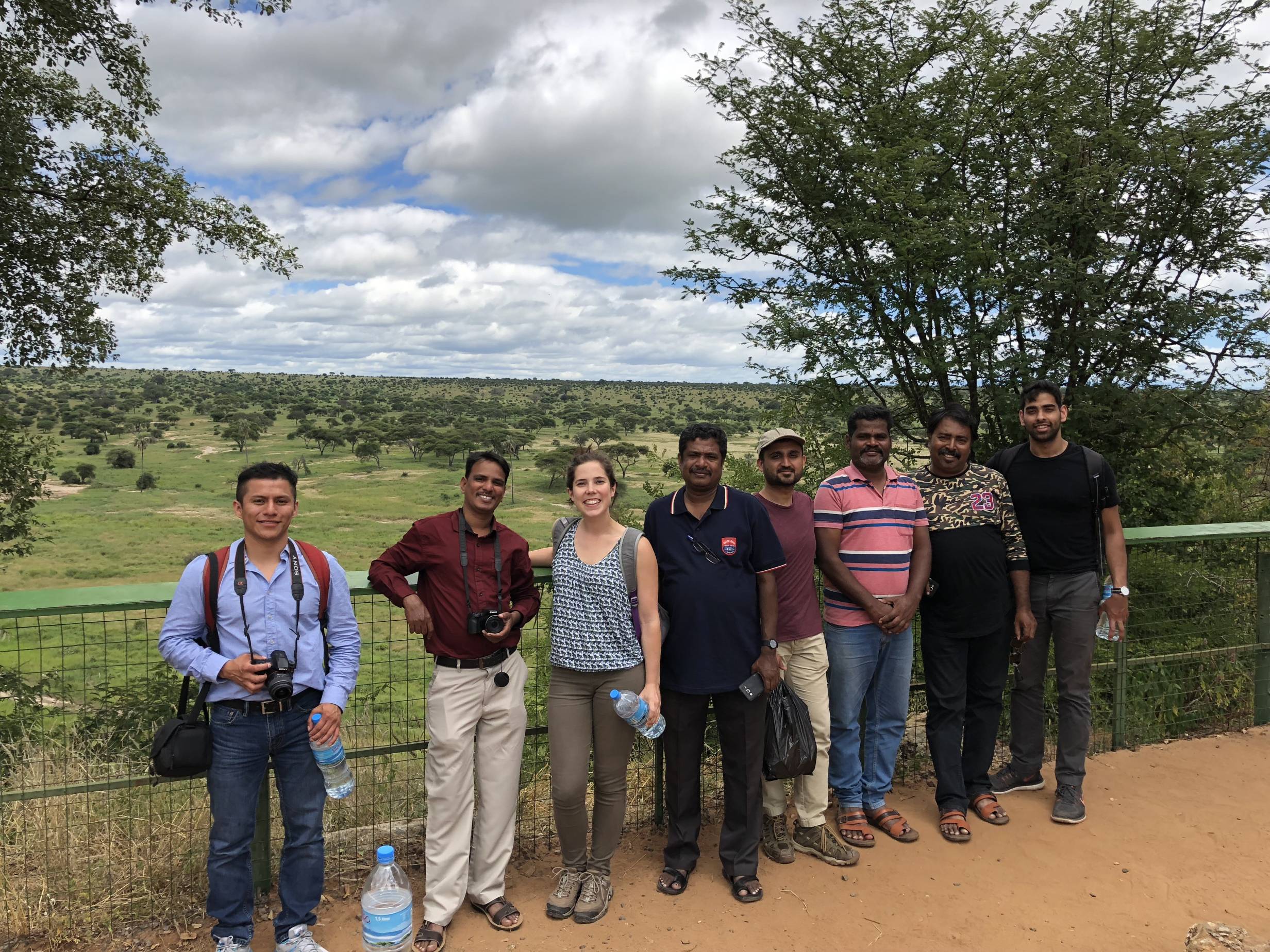
The trip had three overarching goals: research, virtual immersion, and exchange. The graduate students came from various departments across campus and each had unique research goals to gain insights in Tanzania. Marlon Ac and I, graduate students from the Department of Food Science and Human Nutrition researched current diets of the Maasai people. The Maasai are a nomadic pastoralist group of people in northern Tanzania and Kenya. Traditionally, their diet consisted of only three main components: meat, milk, and cow blood. Recently, however, factors such as climate change and globalization have caused them to incorporate more products like vegetables and grains into their diet. Chemistry graduate student Sudharsan Dwaraknath led the efforts on researching the impact of climate change and other environmental issues like clean water in Maasai communities. Marketing graduate student Arun Sreekumar gained insights on entrepreneurship and consumer behavior amongst the Maasai. Collectively, the research was conducted in a bottom-up participatory approach, using interviews with Maasai peoples and discussions with local NGO’s as the main sources of information.
Throughout these interactions and observations, a UIUC film and 360-camera crew recorded footage and audio to create a virtual immersion experience to Tanzania. The project, led by Killivallavan Solai and Marty Booth Hodges, aims to pilot the use of augmented and virtual reality for U of I online and on-campus offerings. The virtual reality will include experiences from all aspects of an immersion trip and is meant for educational purposes used by the University in the future.
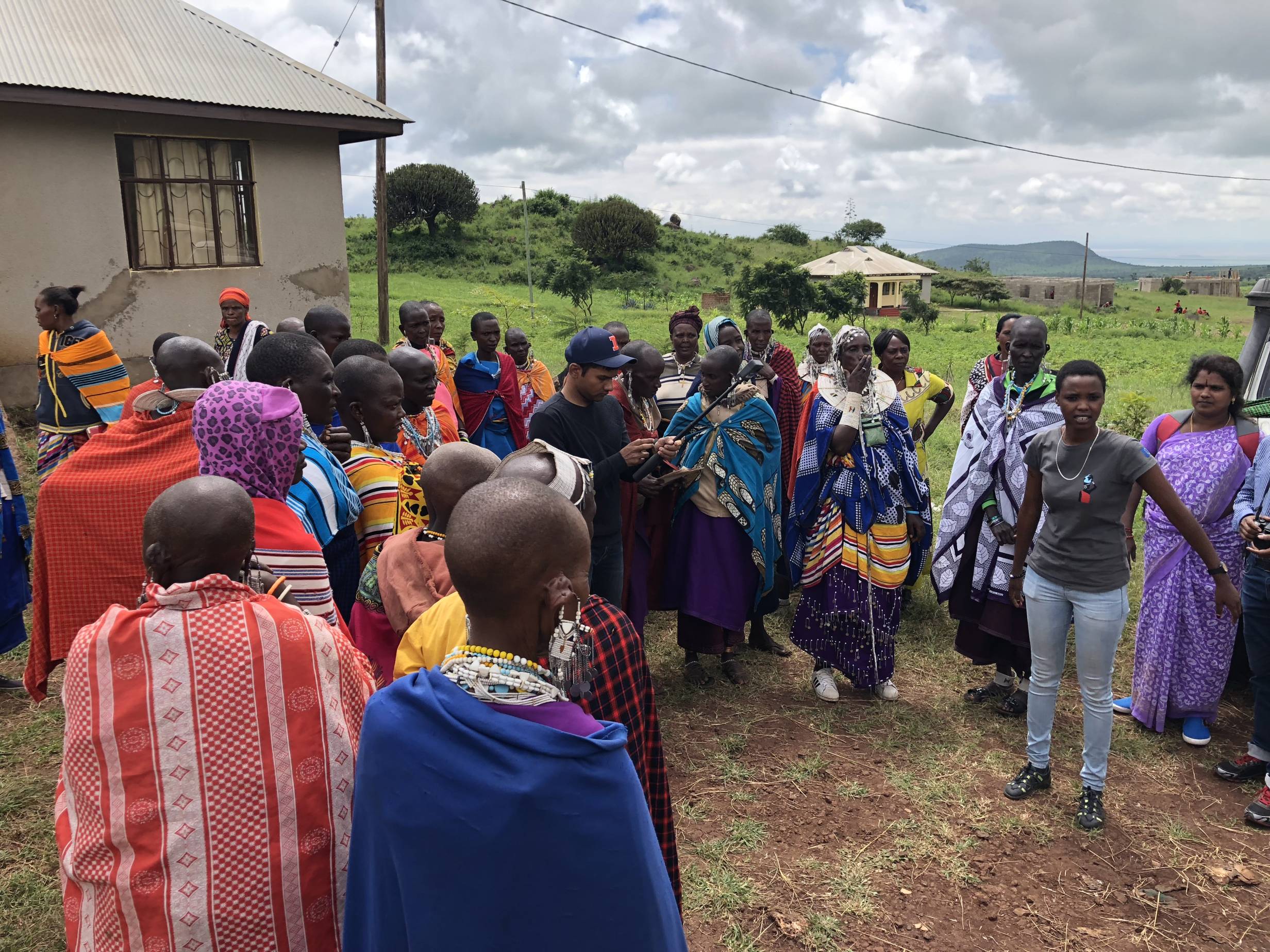 Maasai women greeted us with song and dance in the villages. Killivallavan (in the middle) often immersed himself to capture 360 footages for the virtual reality.
Maasai women greeted us with song and dance in the villages. Killivallavan (in the middle) often immersed himself to capture 360 footages for the virtual reality.
The final component of the trip was an exchange program between the Marketplace Literacy Program in India with its partner program in Tanzania. Earlier this year in January, four Maasai trainers of the MLP program visited the India program in Chennai. The recent travel of six Indian MLC coordinators to Tanzania concluded the unique exchange. By experiencing how another culture navigates living in subsistence marketplaces, the two groups were able to gain experiential knowledge which can be applied back home in their own programs.
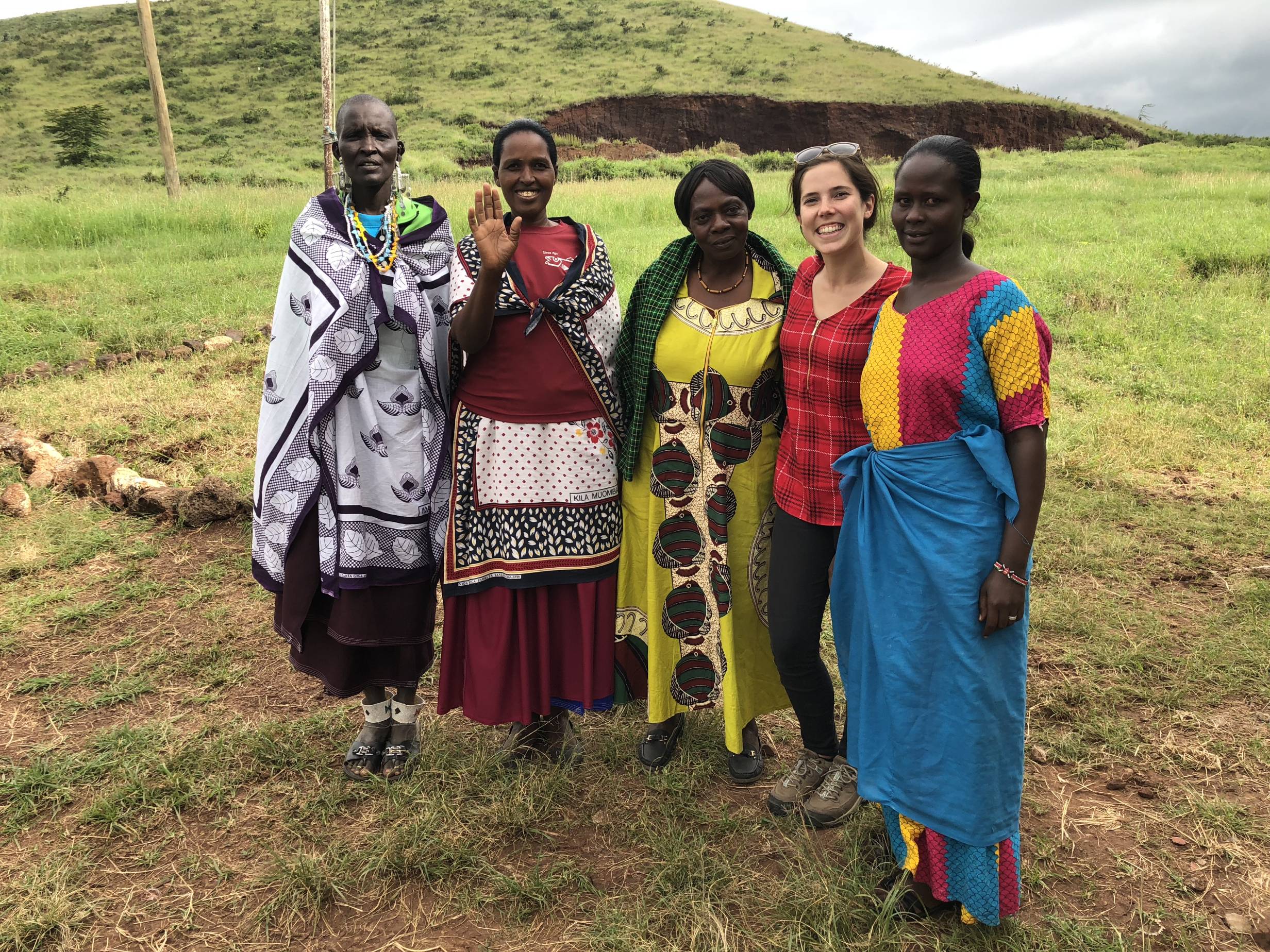
Altogether, the group had five continents and six languages represented. Even though some conversations needed to be translated into three different languages, knowledge was exchanged multilaterally throughout the ten days and between various individuals and groups.
One conversation in particular stands out to me. When we asked a village elder/doctor in the Mkuru village about changes he’s seen throughout his life, his response (through a translator) was this:
“There are big changes. When I was a young boy, there was much rains. There was much rains. That time our main work was to graze the cattle. Our food was milk and meat. But nowadays, we have no rain, and when we plant the seeds like maize, we cannot be successful because there is not enough rain. We have not enough milk because there is not enough grass for the animal. A long time ago there was no diseases for animals or people. We don’t know the reason why now, but nowadays we are sick, the animals are sick. There are big changes.”
Often we talk about climate change impacting “the other,” whether it is icebergs melting in Antarctica, droughts in East Africa, or floods in Asia. It’s hard for us to relate to these changes when they aren’t directly in front of us. However, in that moment, the impacts of climate change were directly in front of me. There are people suffering from decisions that are out of their control. While this village elder would’ve had a lot of reason to be angry with us as representatives from a country of one of the largest carbon footprints, the only message he left us was this: to let our friends back home know about the friendly “bush people” that live far away in Tanzania. He welcomed us again with open arms and was delighted to have us visit and learn from his people.
It’s always a unique opportunity to learn when so many diverse cultures and backgrounds are together in one place. If it weren’t for Professor Madhu and the University fostering these collaborations and meetings, such experiences wouldn’t be possible. Though C-U may be tucked away in the cornfields of Illinois, the diverse cultural opportunities and international connections are never a surprise to those who know it well.
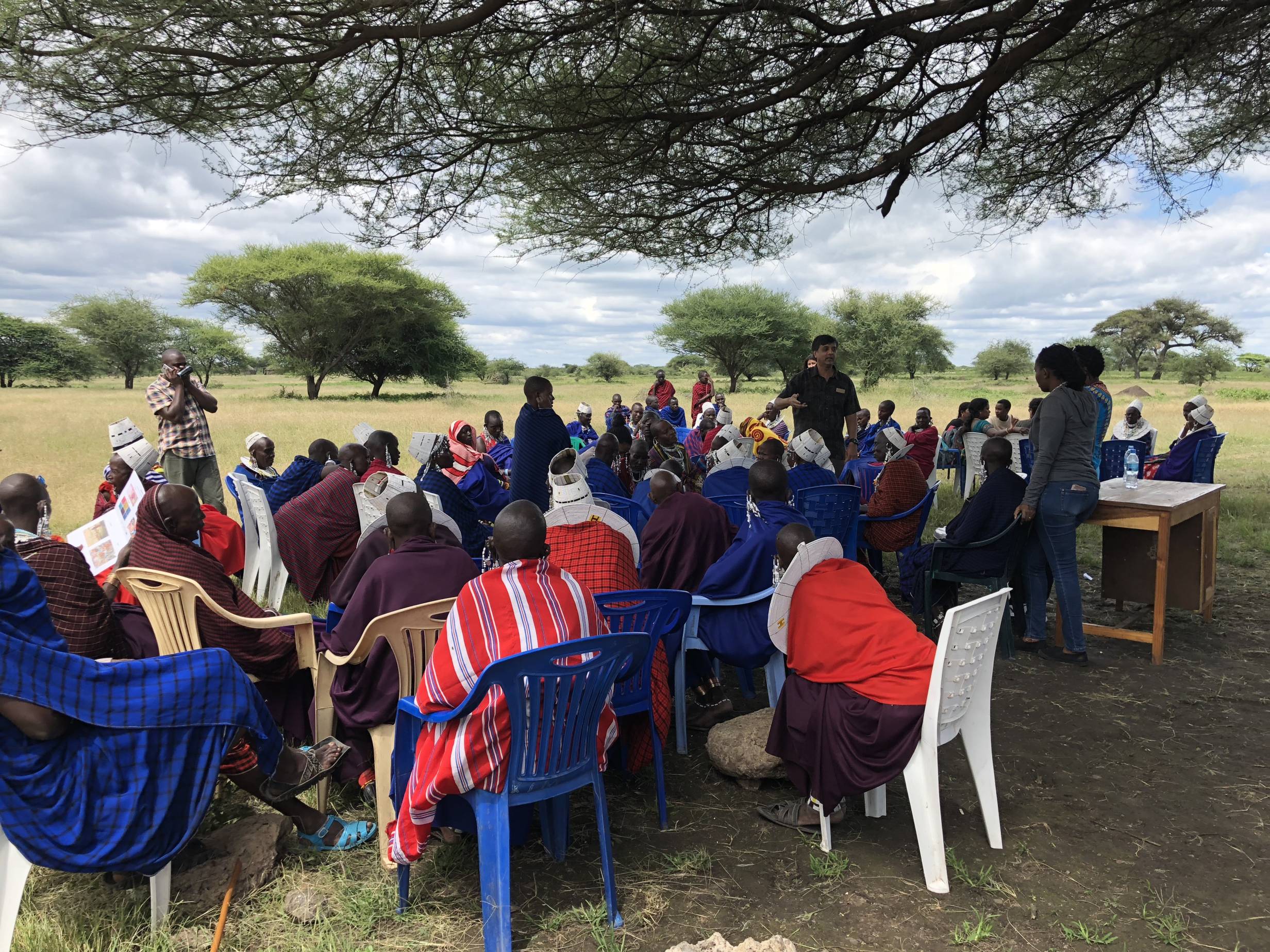 UIUC Professor Madhu Viswanathan speaks to a group of recent Maasai MLP graduates.
UIUC Professor Madhu Viswanathan speaks to a group of recent Maasai MLP graduates.








